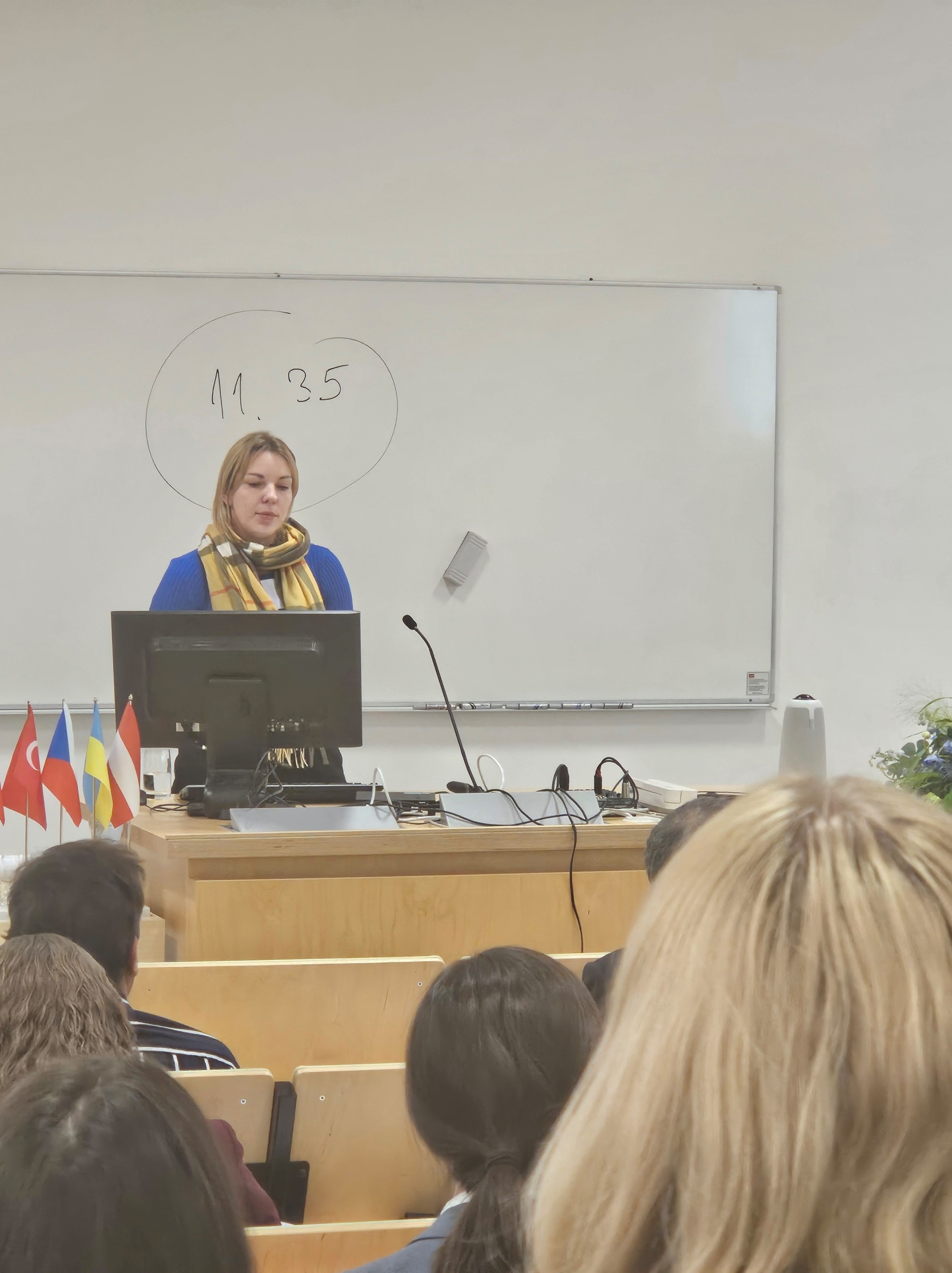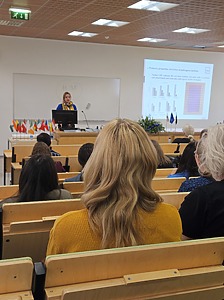In 2024 on May 8-10, Tartu (Estonia) traditionally held the 17th international Baltic Food Science and Technology FoodBalt 2024 conference “Sustainable food production – a challenge for the entire production chain” – here KTU FCT PhD student S. Jazniene was awarded for her presentation.
The FOODBALT 2024 conference focused on the latest trends and innovations in food science and technology to move towards sustainable, resilient and inclusive food production systems.
Food scientists from universities, research institutes and companies from 22 countries participated in the three-day conference.
The report of S. Jezniene, a PhD student in the field of Chemical Engineering of Food Science and Technology of the Faculty of Chemical Technology (FCT) of the Kaunas University of Technology (KTU), was chosen as the best by the decision of the international evaluation committee. The doctoral student was awarded a certificate for the best oral presentation.
S. Jezniene in the report “Co-encapsulation of food-origin lactic acid bacteria exhibiting probiotic properties with prebiotics in cross-linked alginate microcapsules for long-term storage” introduced an encapsulation technology that allows keeping viable probiotic bacteria for a long time.
According to the doctoral student, the biggest challenge is to maintain the necessary amount of viable probiotic bacteria in the final products presented to the consumer, therefore it is important to create biopolymeric systems in which the necessary number of viable bacteria to achieve a therapeutic effect is maintained.
On the other hand, studies on the probiotic properties of bacteria are no less important, confirming the safe use of these bacteria.
During the conference, S. Jezniene presented the probiotic properties of bacteria isolated from spontaneous bread leavens, such as the ability to colonize human keratinocyte cells and the antagonistic effect on pathogenic bacteria, determining the inhibition and coaggregation abilities of pathogenic biofilms.



